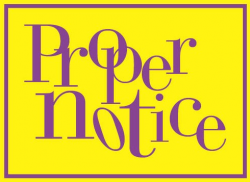
By Dr. Michelle Golland, as seen in JewishJournal.com
Glossophobia, the fear of public speaking, is one of the most commonly reported social fears. Add to it the raging hormones of 13-year-olds and the insecurities fueled by pressure to do a good job (or at least not to humiliate themselves in front of family and peers) and you could have a full-blown case of stage fright on your hands.
While most tweens might have spoken in front of a class of 30 peers, which in and of itself is a big deal, on the day of their bar or bat mitzvah they could be chanting and speaking in front of 60, 100 or even 500 people.
Your child probably won’t run away during the service or throw up on the bimah, but preparing your boychik or girlchik for public speaking is important to ensure a smooth simcha.
Cantor Emerita Aviva Rosenbloom of Temple Israel of Hollywood, who has trained more than 1,200 students over her 32-year career, knows a few things about helping kids cope with their fears.
“Whenever an anxiety or worry was raised by the child, it was dealt with concretely and quickly,” she said.
Rosenbloom suggests finding out what is making your child nervous before the big day and addressing those concerns. Is it his Hebrew skills? Is it the sound of his voice when he chants? Is he worried about what his friends will think? Is he worried about what you will think?
A simple way to alleviate some of those speaking-in-public jitters is to have your child lead some part of a smaller religious service at your synagogue prior to their Mitzvah. Many students can lead a service for younger students either in the day school or the religious school. This will help them work through some of the nerves they will experience while on the bimah in front of a larger audience.
Speech anxiety tips
Prepare, prepare and prepare!
This is the first key to lowering anxiety. As we all know, once students feel confident about their knowledge of the material, any remaining mental worry can be dealt with through the cognitive-behavioral techniques that follow.
Know the room
Have your child become very familiar with the physical setting (i.e., the bimah). Have him speak into the microphone, stand at the lectern and sit where the audience will be.
Know your audience
Help your child remember that the guests are there to support and love her, not to judge her performance. Reinforce to your child that the audience wants her to succeed.
Learn to relax
Teach your child simple breathing techniques, such as breathing in slowly, holding a breath for five seconds and then slowly exhaling. Facial muscle relaxation can help as well. To do this, scrunch the face tightly for three seconds and relax. Repeat this step a few times.
Teach Positive Visualization
Have your child imagine walking confidently to the bimah as the crowd smiles. Have him imagine chanting the Torah with pride in a loud and clear voice.
Turn Nervousness Into Positive Energy
The same nervous energy that causes stage fright can be an asset to your child. Help her harness it and use it to create enthusiasm to prepare and practice.
Don’t Apologize for Being Nervous
Remind your child that most people don’t notice when someone is nervous, so it’s important not to call attention to being afraid.
Most of all, it is important for parents to avoid belittling a child’s fears and anxiety. Do not tell him he has “no reason to be nervous,” because he does have reason to be scared. Rather, help him identify the fear and work through it.
Michelle Golland is a relationship expert with a private practice in Hollywood. She has appeared on “Larry King Live,” HLN, ABC and Fox News, and is a contributor to momlogic.com.





